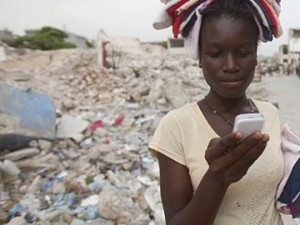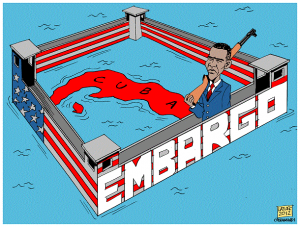In 1982, neoliberal architect Milton Friedman wrote, “Only a crisis — actual or perceived — produces real change. When that crisis occurs, the actions that are taken depend on the ideas that are lying around. That, I believe, is our basic function: to develop alternatives to existing policies, to keep them alive and available until the politically impossible becomes the politically inevitable.” This view informed Friedman’s suggestion in 2005 that the tragedy of Hurricane Katrina was an “opportunity to radically reform the educational system,” a process that fired 7,000 New Orleans public school teachers and poured money into privatized charter schools, while many in the city languished without local, state, or federal aid.
To paraphrase Karl Marx, the tragedy of New Orleans became the farce of Haiti. In 2010, following an earthquake that killed almost 200,000 people and decimated major cities such as the capital Port-au-Prince, “the Bill and Melinda Gates Foundation and the USAID-funded Haiti Integrated Finance for Value Chains and Enterprises (HIFIVE [— yes, you read that right]) announced the launch of the Haiti Mobile Money Initiative (HMMI) to stimulate the development of mobile money services in Haiti.” In a population of 9 million, with over 3 million using cell phones, this seems like a boon for Haiti’s recovering social infrastructure, according to a glowing 2011 article by Baptiste, Horst, and Taylor. But in a country long-chained to enslavement and international debt, if the Haitian working people’s financial stability is as fleeting as a phone signal and available minutes, this new development may be another Friedman crisis moment waiting to capitalize on devastated need. As one Haitian worried, “I’m not going to invest my money in something I don’t see… It could be a trick.” That the mobile banking model is also appearing in Africa and the U.S. on the heels of a not-so recent global economic crash shows how immaterial banking processes may become our dystopian future. No longer can we have runs on banks when our fragile phones replace them.
But sometimes a natural disaster isn’t needed to force open a new market. With the transfer of Fidel Castro’s power to his brother Raul, and a slight “relaxation” of the Cuban economy to free market trade, a range of people seek the US embargo on Cuba to be lifted. Some Cubans yearn for basic necessities, outside family contact, and an end to US trade punishment on ideological grounds. Other Cubans yearn to import start-ups, tourism, and other new business operations. Although the Latin America Working Group’s Facebook page End the Travel Ban on Cuba seems wary of the new-and-improved cool war to overturn Cuban communism, many of the articles they post are written from a free market slant. While one posted New York Times article admits, “It has been a shocking reversal for a community of exiles that has long represented a pillar of support for the American embargo against Cuba,” it baldly states, “Without enough capital for bigger ventures… some ambitions are just visions.” The lack of available journalistic clarity for LAWG to share on how neoliberalism can create further deprivation through a crisis situation (reframed as golden opportunity), in the end, muddies their message on how best to advocate for the Cuban working people not getting shafted again.
These brief connections urge the question: what happens when history repeats itself three, four, five, a thousand times? And in contrast, what if we were to turn Friedman’s mantra on its head — how can disaster solidarity, migration justice, economic equality, and other anti-capitalist projects consciously “develop alternatives to existing policies, to keep them alive and available until the politically impossible becomes the politically inevitable”?





Conner, great conversation on what it means to rebuild a countries infrastructure after a disaster. This reminds of the “Shock Doctrine” and there by Niomi Klein, basically she speaks that in times of crisis government and other forces that be are usually ready to push through doctrines that a very unpopular and might not serve the public interest at all. Take Bushes war with Iraq, that war only too place because following 911 attacks to country was in a state of shock and bush was allowed to use this shock to progress in own interest.
https://www.youtube.com/watch?v=aSF0e6oO_tw